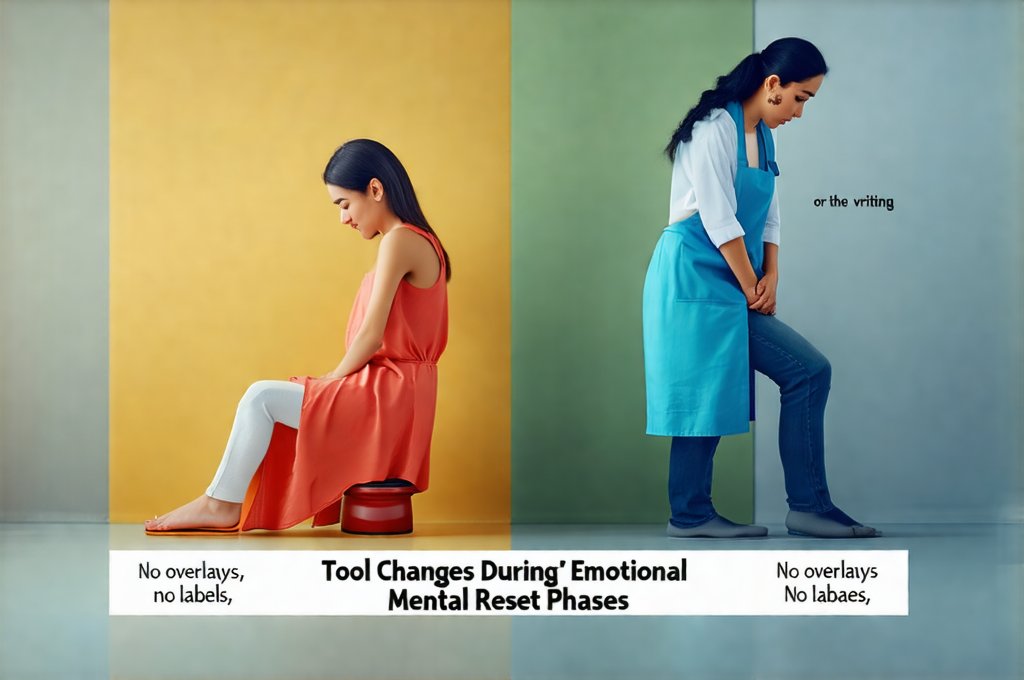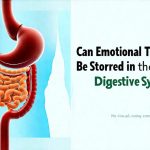Our bodies are remarkably interconnected systems, constantly communicating internally. While we often focus on physical symptoms as indicators of health, emotional and mental states profoundly impact our physiological processes—and this influence frequently manifests in surprising ways, including changes to digestive function and stool patterns. Periods of significant emotional or mental shift, whether triggered by stress, trauma, growth, or intentional self-work (like therapy or meditation), can often coincide with alterations in bowel habits. These shifts aren’t necessarily signs of illness; instead, they’re frequently a natural consequence of the gut-brain connection and the body’s attempt to recalibrate during times of internal change. Understanding this relationship is vital for navigating these experiences with self-compassion and avoiding unnecessary worry.
The gut-brain axis is a bidirectional communication network linking the gastrointestinal tract and the brain. This isn’t simply one-way traffic; signals travel both ways. The brain can influence digestion through nerve impulses, hormonal signals, and immune responses. Conversely, the gut microbiome—the trillions of bacteria residing in our digestive system—can impact brain function via neurotransmitter production, vagus nerve stimulation, and modulation of the immune system. When we experience strong emotions, or undergo significant mental processing, this axis becomes highly active. This can disrupt normal digestive processes, leading to changes in motility (how quickly food moves through the gut), intestinal permeability (“leaky gut”), and even the composition of the microbiome itself. Therefore, stool changes during emotional resets aren’t a random occurrence – they are often a visible sign of this complex interplay between mind and body. Considering stool signs can also help you understand your gut health.
The Gut-Brain Connection & Emotional Processing
The intricate link between our digestive system and emotional state explains why stress, anxiety, and even joy can directly impact bowel function. Imagine the “fight or flight” response: when we perceive a threat (emotional or physical), the sympathetic nervous system kicks in, diverting blood flow away from non-essential functions like digestion towards muscles preparing for action. This can slow down gut motility, leading to constipation or, conversely, speed it up, resulting in diarrhea. Chronic stress can perpetuate these disruptions, contributing to conditions like Irritable Bowel Syndrome (IBS). However, even positive emotional shifts – breakthroughs in therapy, periods of deep self-reflection, letting go of past traumas – can trigger digestive changes as the body adjusts to a new internal state.
The gut microbiome plays an especially important role here. Our emotional experiences influence the types and quantities of bacteria that thrive in our gut. Stress, for example, can reduce microbial diversity and increase populations of potentially harmful bacteria, while positive emotions and mindful practices may promote a more balanced and resilient microbiome. Neurotransmitters, chemical messengers crucial for mood regulation like serotonin and dopamine, are largely produced in the gut. This means that changes in gut health can directly affect our emotional well-being, and vice versa creating a powerful feedback loop. It’s not simply about “nervous digestion” – it’s about a complete system responding to and reflecting our internal world. Understanding gut sensitivity can also help you navigate these changes.
Furthermore, unresolved emotional issues often get “stuck” within the body. The gut, being a major organ of elimination, can sometimes become a repository for these unexpressed feelings or traumas. As we process and release these emotions during an emotional reset phase, it’s not uncommon to experience physical symptoms as the body attempts to clear them out – this can include changes in stool frequency, consistency, color, and even odor. This is why journaling, therapy, and other forms of emotional processing can sometimes be accompanied by noticeable digestive shifts. Prioritizing mental health support during these times is vital.
Understanding Specific Stool Changes
Stool characteristics are valuable indicators of gut health and overall well-being. Recognizing these changes during emotional reset phases can help differentiate between normal fluctuations and potential concerns requiring further investigation. Here’s a breakdown of common stool alterations:
- Diarrhea: Frequent, loose stools often signal increased stress or anxiety. It could also indicate the rapid processing of emotions as the body attempts to “flush” them out. It’s important to stay hydrated and avoid trigger foods during these episodes.
- Constipation: Difficulty passing stools or infrequent bowel movements can be linked to suppressed emotions, fear, or a feeling of being overwhelmed. The body may prioritize energy conservation over digestion in response to perceived threats.
- Changes in Consistency: Stools might alternate between diarrhea and constipation, reflecting the fluctuating emotional state. This is common during periods of intense self-work or trauma processing.
- Color Variations: While generally less concerning, changes in stool color can sometimes provide clues. Dark stools might suggest bleeding (seek medical attention), while pale stools could indicate issues with bile production. Yellowish stools can be linked to fat malabsorption, but this is less common and usually requires further investigation.
- Urgency & Bloating: An increased sense of urgency or significant bloating often accompanies emotional distress, as the digestive system becomes hyper-sensitive and reactive.
It’s essential to remember that these changes are contextual. A single episode of diarrhea after a stressful event isn’t necessarily cause for alarm. However, if stool changes are persistent, severe, or accompanied by other concerning symptoms (such as blood in the stool, fever, or significant abdominal pain), it’s crucial to consult with a healthcare professional to rule out underlying medical conditions. Don’t immediately assume it’s “just emotional” without seeking appropriate guidance. Learning about stool color can help you assess these changes.
The Role of Mindfulness & Self-Care
During periods of emotional reset, prioritizing self-care is paramount—and this includes paying attention to your digestive health. Mindful eating can be incredibly beneficial. This involves slowing down during meals, savoring each bite, and being fully present with the experience of eating. It reduces stress on the digestive system and allows for better nutrient absorption. Incorporating relaxation techniques like deep breathing exercises, meditation, or yoga can also help regulate the nervous system and improve gut function.
Diet plays a significant role too. Focus on consuming whole, unprocessed foods rich in fiber, prebiotics (foods that feed beneficial gut bacteria), and probiotics (live microorganisms found in fermented foods). Reducing intake of processed foods, sugar, caffeine, and alcohol can minimize irritation to the digestive system. Hydration is also crucial – aim for at least eight glasses of water daily.
Navigating Emotional Release & Digestive Discomfort
Emotional release – whether through therapy, journaling, creative expression, or other means – can be a powerful catalyst for healing but it’s often accompanied by physical symptoms, including digestive upset. It’s important to approach this process with self-compassion and understand that discomfort is sometimes part of the journey. Don’t try to suppress these feelings; allow yourself to experience them fully (within safe boundaries) while practicing gentle self-care.
- Create a Safe Space: Ensure you have a supportive environment where you feel comfortable expressing your emotions without judgment.
- Gradual Processing: Don’t attempt to tackle all of your emotional baggage at once. Break down the process into smaller, manageable steps.
- Listen to Your Body: Pay attention to your physical and emotional cues. If you’re feeling overwhelmed or experiencing significant digestive distress, take a break and prioritize rest.
- Seek Support: Connect with trusted friends, family members, or a therapist who can provide guidance and support throughout the process.
If stool changes become debilitating or persistent despite self-care efforts, it’s essential to seek professional medical advice. A healthcare provider can help rule out underlying medical conditions and recommend appropriate treatment options. Remember that emotional well-being and digestive health are deeply intertwined—addressing both is crucial for overall health and vitality. Supporting emotional safety during this process can be incredibly helpful, as can understanding foods to choose for optimal well-being. Finally, remember that gut checks are essential to maintaining health.


















